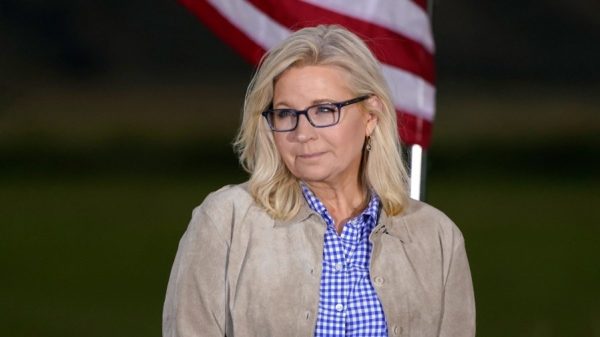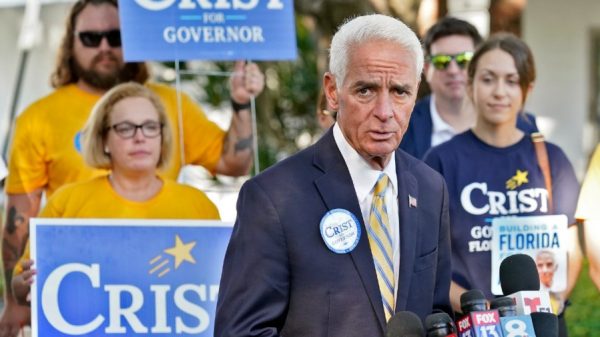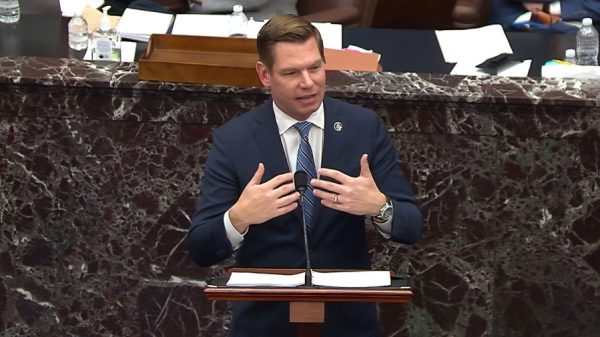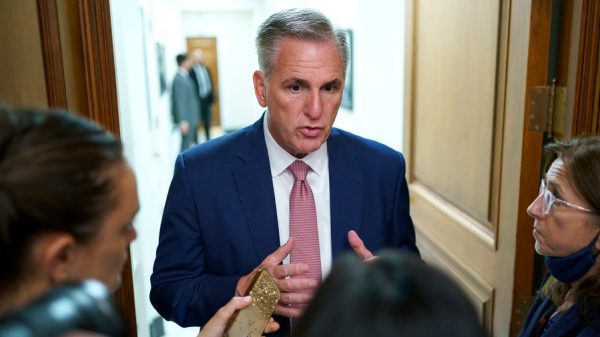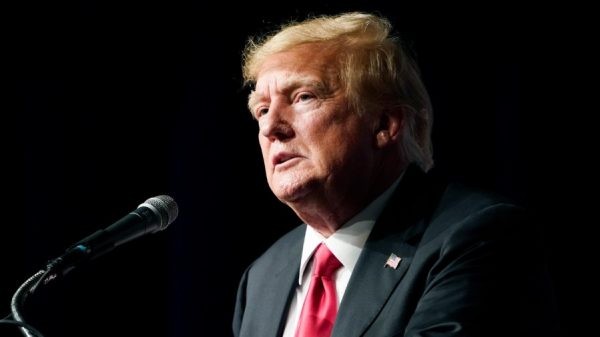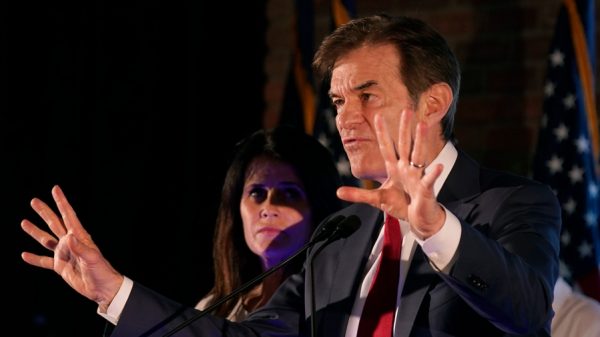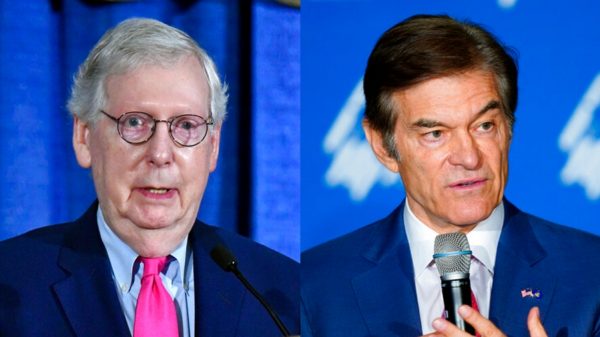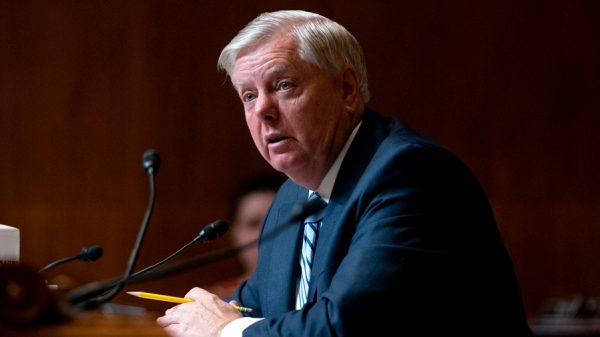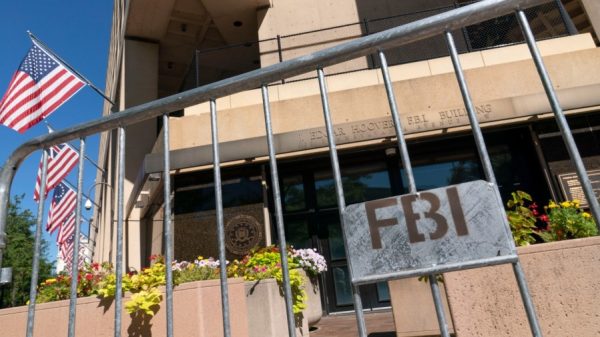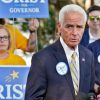President Biden is keeping student loan borrowers in suspense over whether he’ll decide to again extend a freeze on repayments. We’ll also look at the new boogeyman Republicans have been zeroing in on ahead of the November midterm races, the country’s trade talks with Taiwan and more.
But first, check out the latest installment in our new DRIED UP series, which examines the dire effects of the American West’s megadrought on states most affected.
Welcome to On The Money, your nightly guide to everything affecting your bills, bank account and bottom line. For The Hill, we’re Sylvan Lane, Aris Folley and Karl Evers-Hillstrom. Someone forward you this newsletter? Subscribe here.
Student loan payment pause in limbo
President Biden is keeping student loan borrowers in suspense over whether he’ll decide to again extend a freeze on repayments with less than two weeks to go until the Aug. 31 cutoff date.
It’s the smallest such window of time borrowers have had so far since the pause in federal loan repayments began at the start of the COVID-19 pandemic, with lawmakers and advocates pressuring the administration to make a decision that revolves around crucial financial planning.
- The delay in announcing a decision and the approaching midterm election raise questions over if the news will include more than a payment pause extension and potentially a long-awaited decision to forgive some amount of such debt.
- The freeze has been extended six times since loan payments were first put on hold in March 2020 under former President Trump. The order froze the accrual of interest on federal student loans serviced by the U.S. Department of Education, effectively freezing $1.6 trillion in debt owed by more than 40 million Americans.
- Education Secretary Miguel Cardona on Tuesday indicated a decision will be made “soon” on student loan repayments, but wouldn’t say whether the Biden administration plans to extend the pause.
The background: The president said last month that “the end of August” is his timeline for making a decision –– potentially butting an announcement right up to the deadline –– but he’s otherwise kept his next move on student loans a mystery, leaving borrowers and advocates waiting largely in the dark.
During the 2020 campaign, Biden championed forgiving at least $10,000 in federal student loans per person. Over a year ago, he requested a memo from the Department of Education to determine his authority to forgive student debt through executive action, but the administration has not publicly announced if the memo is complete.
Aris and The Hill’s Alex Gangitano have the rundown here.
LEADING THE DAY
IRS becomes GOP boogeyman ahead of midterms
As Republicans rail against the FBI in the wake of last week’s search at Mar-a-Lago, they are also hyping the danger to voters from another three-letter federal agency: the IRS.
The GOP is warning that the $80 billion funding boost to the IRS included in Democrats’ tax, climate and health care package, which President Biden signed into law on Tuesday, will target middle-class Americans with an “army” of new enforcement agents.
- The Republican National Committee (RNC) released a video earlier this week that slams Democrats for expanding the IRS, arguing that it will harm everyday Americans despite Democrats’ insistence that the extra funding is intended to make sure wealthy taxpayers and corporations don’t stiff the government.
- Democrats, the Biden administration and various fact-checkers have pushed back on the claims. Treasury Secretary Janet Yellen said in a letter to IRS Commissioner Charles Rettig that audit rates should not “rise relative to recent years for households making under $400,000 annually” and that new resources should not be directed to audits of families or businesses that fall below those levels. Yellen wrote that “enforcement resources will focus on high-end noncompliance.”
- But Republicans counter that there is nothing in the law to prevent an increase to audits of middle-class Americans and note that Democrats voted against a GOP amendment to prevent the new funds from being used to go after lower earners.
The Hill’s Emily Brooks has the deets here.
TRADE TALKS
US, Taiwan agree to start trade talks amid China tensions
The United States and Taiwan have agreed to start formal talks on a trade pact, the governments of both countries said, a decision that comes amid rising tensions with China.
The negotiations on a new economic pact will begin early this fall, according to a statement from the Office of the U.S. Trade Representative, and will cover 11 different subject areas, including trade facilitation, regulatory practices, anticorruption, agriculture, digital trade, labor environment and state-owned enterprises.
- Deputy U.S. Trade Representative Sarah Bianchi said in the statement the negotiations between Washington and Taipei would “deepen our trade and investment relationship, advance mutual trade priorities based on shared values, and promote innovation and inclusive economic growth for our workers and businesses.”
- A statement from Taiwan’s Office of Trade Negotiations said that the talks would aim not only to strengthen investment and trade between the U.S. and Taiwan but also to bolster the island’s overall economic strength and increase its participation in international pacts.
The Hill’s Morgan Chalfant has more on this here.
POSSIBLE OIL SLOWDOWN
New OPEC chief expects oil demand growth to slow in 2023
The new secretary general of global oil-producing alliance OPEC said he expects oil demand growth to slow in 2023.
“It all depends on how things unfold,” Haitham al-Ghais, who took on the new role on Aug. 1, said, adding: “We do see a slowdown in 2023 in demand growth, but it should not be worse than what we’ve had historically.”
- The week al-Ghais assumed the role, OPEC and its allies agreed to increase oil production in September by 100,000 barrels a day, a far slower pace than its 648,000 barrels per day increases in July and August. The new secretary didn’t indicate what OPEC would decide at its next meeting scheduled for Sept. 5.
- Brent crude prices clocked in just below $97 per barrel as of Thursday afternoon, a slight increase from earlier this week when prices fell to roughly $92 per barrel. The recent dip marked the lowest price level since before Russia invaded Ukraine in February, which sent prices skyrocketing to more than $120 per barrel.
The Hill’s Zach Schonfeld has more here.
Good to Know
An agreement between the Danish manufacturer of the only U.S. approved monkeypox vaccine and a Michigan-based company would move the final packaging steps to the U.S. in an effort to expedite the delivery of millions of doses.
Company and administration health officials on Thursday announced Denmark-based Bavarian Nordic entered into an agreement with U.S.-based contract manufacturer Grand River Aseptic Manufacturing.
Here’s what else we have our eye on:
- Meta took down the Facebook page and Instagram account for Children’s Health Defense, an anti-vaccination organization headed by Robert F. Kennedy Jr., due to what it referred to as repeated violations of its COVID-19 policy.
- More than 650 Google employees signed a petition asking the tech giant to pause donations to any political action committees or individual politicians because the workers said the lawmakers “were responsible” for appointing the Supreme Court justices who voted to overturn Roe v. Wade earlier this year.
That’s it for today. Thanks for reading and check out The Hill’s Finance page for the latest news and coverage. We’ll see you tomorrow.
VIEW FULL VERSION HERE









